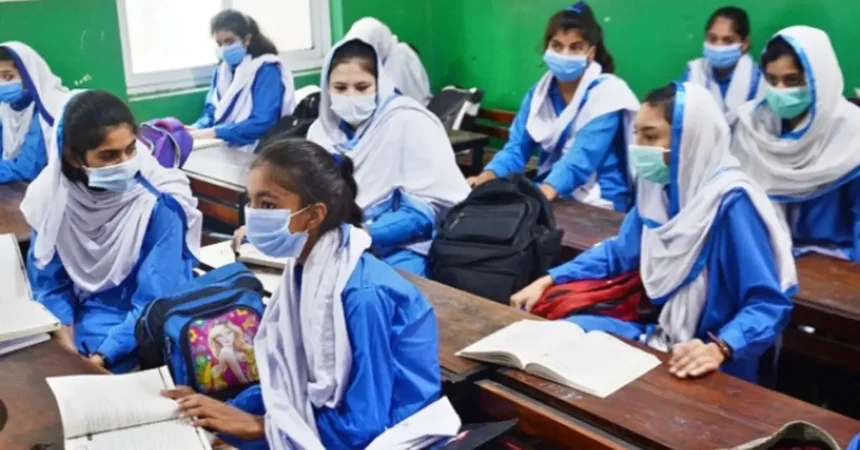In a significant move to promote educational equity, the government of Pakistan has announced an enhancement of the Benazir Educational Scholarships and Stipends program. This initiative aims to provide financial assistance to underprivileged students, enabling them to pursue their education without the burden of financial constraints. With education being a fundamental right and a key driver of socio-economic development, this initiative seeks to create a more inclusive educational landscape in Pakistan.
Background of the Benazir Educational Scholarships
The Benazir Educational Scholarships program was launched to honor the legacy of former Prime Minister Benazir Bhutto, who championed education as a means to empower youth and uplift marginalized communities. The program was designed to provide financial support to deserving students, particularly those from low-income families, to ensure they have access to quality education.
The scholarships cover various levels of education, including primary, secondary, and higher education, making it a comprehensive initiative aimed at promoting educational attainment across the country. Over the years, the program has benefited thousands of students, enabling them to pursue their academic aspirations and contribute positively to society.
Enhancements to the Scholarship Program
The recent announcement regarding the enhancement of the Benazir Educational Scholarships and Stipends program is a welcome development in the realm of educational support. The government has recognized the need to expand the reach of this initiative to cater to an increasing number of students who require financial assistance.
1.Increased Financial Support: The government has proposed to increase the amount of financial assistance provided through the scholarships. This increase aims to cover rising educational expenses, including tuition fees, books, and other essential supplies. By alleviating the financial burden, the government hopes to encourage more students to continue their education.
2. Broader Eligibility Criteria: To ensure that more students can benefit from the program, the eligibility criteria for the scholarships will be broadened. This means that more families falling below the poverty line will qualify for financial assistance. This adjustment is crucial in a country where many families struggle to afford basic educational expenses.
3. Focus on Girls’ Education: A significant emphasis will be placed on promoting girls’ education through the scholarship program. The government recognizes that girls often face additional barriers to education, including socio-cultural constraints and financial limitations. By specifically targeting female students, the initiative aims to empower young women and promote gender equality in education.
4. Awareness Campaigns: The government plans to launch awareness campaigns to inform students and their families about the enhanced scholarship opportunities. Many families may be unaware of the available financial support, leading to missed opportunities for their children. By actively promoting the program, the government aims to ensure that eligible students can access the scholarships.
5. Collaboration with Educational Institutions: The enhancement of the Benazir Educational Scholarships will also involve collaboration with various educational institutions across the country. This partnership aims to streamline the application process and ensure that the funds reach deserving students in a timely manner.
Significance of Educational Scholarships
Educational scholarships play a vital role in shaping the future of individuals and societies. They provide opportunities for students who may otherwise be unable to afford education, contributing to a more educated and skilled workforce. The enhancement of the Benazir Educational Scholarships is not merely a financial initiative; it represents a commitment to the following key areas:
1.Poverty Alleviation: Education is a powerful tool for breaking the cycle of poverty. By providing financial support to underprivileged students, the government aims to empower them to pursue their educational goals, leading to better employment opportunities and improved living standards.
2. Human Capital Development: Investing in education is essential for the development of human capital. A well-educated population contributes to economic growth, innovation, and social progress. By enhancing scholarships, the government is investing in the future of the nation.
3. Social Mobility: Scholarships provide a pathway for social mobility, enabling individuals from marginalized backgrounds to rise above their circumstances. This initiative aims to create a more equitable society where everyone has the chance to succeed.
4. National Development: A focus on education is crucial for national development. By equipping the youth with the skills and knowledge necessary for the workforce, the government can drive economic growth and improve the overall quality of life for its citizens.
5. Promotion of Meritocracy: Scholarships based on merit encourage students to strive for excellence in their academic pursuits. By rewarding hard work and dedication, the government promotes a culture of meritocracy, where success is based on ability rather than socio-economic background.
Challenges to Educational Access
Despite the positive steps taken by the government to enhance scholarships, several challenges remain in ensuring equitable access to education in Pakistan. Addressing these challenges is crucial for the success of the initiative and for achieving broader educational goals.
1. Socio-Cultural Barriers: In many regions of Pakistan, cultural norms and societal attitudes pose significant barriers to education, particularly for girls. Addressing these socio-cultural factors requires comprehensive community engagement and awareness programs to promote the importance of education for all children.
2. Geographic Disparities: Access to education varies significantly across different regions of Pakistan. Rural areas often face a shortage of educational facilities, qualified teachers, and resources. Enhancing scholarships alone may not be sufficient to overcome these geographic disparities; infrastructure development is also essential.
3. Quality of Education: While financial support is crucial, the quality of education is equally important. Many educational institutions face challenges related to outdated curricula, lack of resources, and insufficient teacher training. The government must work to improve the overall quality of education to ensure that scholarship recipients receive a valuable learning experience.
4. Awareness and Application Processes: Even with enhanced scholarships, some families may lack awareness of the application process or may find it complex. Simplifying the application process and providing clear guidelines will be essential to maximize the program’s reach.
The Role of Stakeholders
The successful implementation of the enhanced Benazir Educational Scholarships requires collaboration among various stakeholders, including government agencies, educational institutions, civil society organizations, and local communities. Each stakeholder plays a vital role in ensuring that the initiative achieves its intended objectives.
1. Government Agencies: The government must allocate sufficient resources and funding to support the enhanced scholarship program. Additionally, it should establish monitoring mechanisms to evaluate the program’s effectiveness and make necessary adjustments.
2. Educational Institutions: Schools, colleges, and universities play a critical role in implementing the scholarship program. They should actively engage with students and their families, provide information about scholarship opportunities, and facilitate the application process.
3. Civil Society Organizations: NGOs and community-based organizations can help raise awareness about the scholarship program, especially in underserved areas. Their involvement can ensure that marginalized communities are informed about available resources and opportunities.
4. Local Communities: Community engagement is essential for the success of the scholarship program. Local leaders and community members can advocate for education and encourage families to support their children’s educational aspirations.
The government’s commitment to enhancing the Benazir Educational Scholarships and Stipends program represents a significant step toward achieving educational equity in Pakistan. By providing financial support to underprivileged students, the initiative aims to empower individuals, promote social mobility, and contribute to national development.
While challenges remain, the collaborative efforts of various stakeholders can help create a more inclusive educational environment where every child has the opportunity to thrive. As Pakistan continues to invest in its youth through education, the nation takes a vital step toward building a brighter and more prosperous future for all.
#Pakistan #BenazirScholarships #Education #GovernmentInitiative #YouthEmpowerment #SocialMobility #PovertyAlleviation #EducationalEquity #CulturalBarriers #NationalDevelopment







